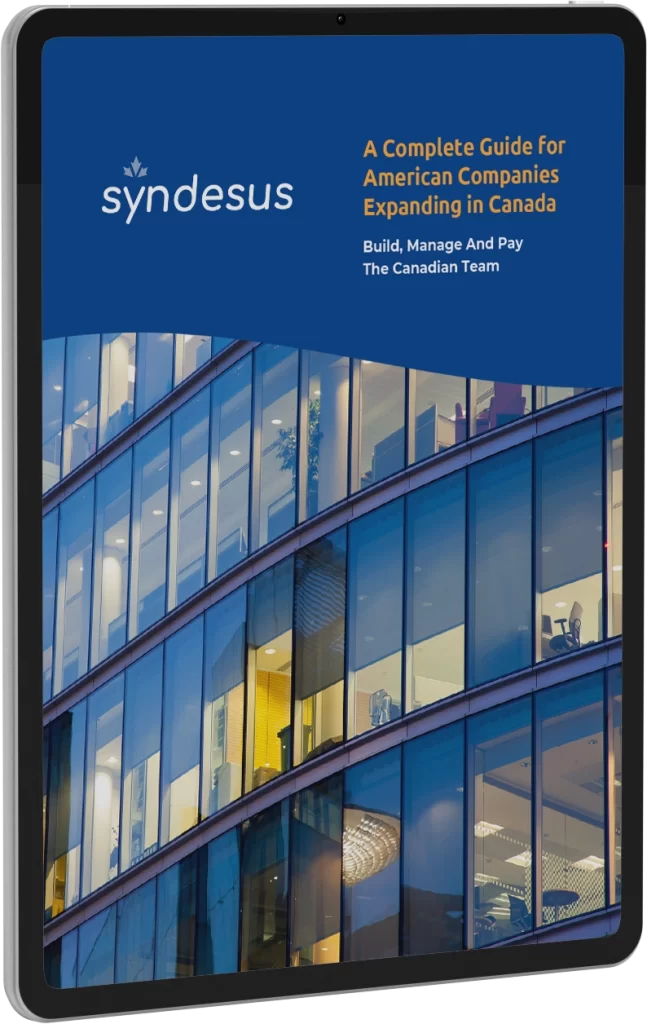For Canadians in the tech industry, there are plenty of opportunities to be found across the border in the USA.
Probably the biggest and most attractive allure is the money. According to research by Robert Half, the average Chief Information Officer in the US earns $202,500 (US dollars) per year, while in Canada the average is just $165,000. Still impressive, but significantly less for the same job.
The difference is even starker when comparing cities. A Data Scientist in San Francisco can hope to pull in $166,600, but someone in the same role in Ottawa will only make $107,100 on average.
Remote workers also get to retain a lot of their freedom, avoid stressful commutes, and spend more time with family.
On top of this, there are more opportunities in the US What’s more, the culture and time zone are pretty much the same, and it’s not terribly difficult to travel between the two countries.
Of course, relocating to a new country is a big step. But we now live in a world where that isn’t necessary. It’s entirely possible to work remotely — remaining in Canada while working for a US company.
Remote workers also get to retain a lot of their freedom, avoid stressful commutes, and spend more time with family. Research even shows that remote workers are more productive.
We understand that getting a remote job with a US company isn’t easy. There are lots of challenges involved, and the best way to tackle them is with the help of an Employer of Record, or EOR.
Here’s why Canadian tech workers should work with an EOR to find remote jobs in the U.S
Employee Benefits
Benefits are important when it comes to choosing a job. In one survey, benefits tied with salary as the most important factor when deciding on an employer.
Healthcare, 401(k) matching, a laptop, transport subsidies, and company expenses are all things that can make or break an employer. However, these can be tough to negotiate when working remotely, as it’s easy to fall into a contractor role where you aren’t treated as a full employee.
An EOR solves this problem by allowing you to work under the same conditions as someone hired and based on US soil. You’ll be able to combine the freedom and flexibility of remote work from Canada with a complete set of company benefits.
Taxes
Paying taxes is never fun, but it comes with an added array of challenges when you’re working for a company in a different country. It’s a complex area with lots of confusing regulations, and relying on a non-Canadian company to handle this can be risky.
An EOR is capable of remitting your taxes to the Canada Revenue Agency and keeping your employer informed about your status.
A good EOR will take on the responsibility of determining your tax status and filing taxes so neither you nor your American employer has to worry about it. An EOR is capable of remitting your taxes to the Canada Revenue Agency and keeping your employer informed about your status.
Feeling at Home
When working remotely, it’s easy to feel removed from the company you work for. This feeling can intensify if you’re being treated like a mercenary or contractor, without access to the same perks and benefits as on-site employees.
An EOR can help you feel like a part of the team by making sure you’re treated the same as a regular employee in the US This could include:
- Accessing the same benefits as US-based employees, like the ones mentioned above
- The possibility to own US stock options in your company
- Attending company events and conferences in the US
By accessing the same rights and benefits as US-based staff, you’ll feel like you belong in the company and more like a permanent part of the team as opposed to someone on the outside.
Legal Rights
The legal landscape in Canada is a little different from the US, and this can cause a few headaches for Canadians working remotely for American companies.
It’s important to have a contract of employment that’s compliant with Canadian law, for one. This is probably something your US employer will have little experience with, so it’s a good idea to work with an EOR that has experience with Canadian employment law to ensure everything is above board.
Canadian workers also have different legal protections, different holidays, and different forms of business to those employed in the US Even though you’ll be working for an American company, you’ll likely want to be treated legally as a Canadian worker, and this is another area an EOR can help.
It’s a much better approach, ensuring you can reap the rewards of a US employer while still working in essentially the same legal framework as though you were employed by a Canadian company.
Job Security
Many US companies may have understandable concerns about hiring remote workers. There can be a lot of hidden costs and risks involved if the process isn’t done right, which may ultimately translate to less job security for the employee.
Fortunately, an EOR can help mitigate these challenges and make the process of hiring a remote, overseas worker much smoother, cheaper, and easier. When everything is as easy as possible, this means your life as a remote worker will be smoother and more secure.
An EOR can work to the benefit of Canadian workers just as much as American employers. They can help make the transition into a remote career as easy and secure as it can be, providing expert guidance and support to help you navigate the challenges and risks involved.
Are you a US employer looking to employ remotely in Canada? Schedule a free Canadian EOR consultation. We can have your Canadian employee working in as little as 10 days.

